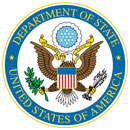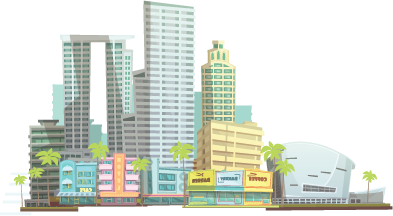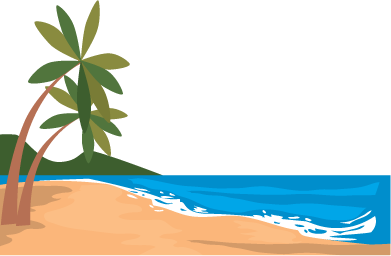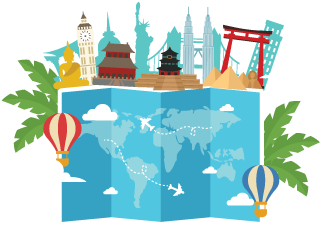-
Capital:
Riga
-
Currency:
Euro
-
Time zone:
UTC+2 (EET)
-
Driving side:
Right
-
Country calling code:
-
Language(s):
Latviana
Latvia: An Overview
Latvia, formally the Republic of Latvia, is a Baltic nation in Northern Europe. Scenic and sparsely populated it is home to astonishingly lovely landscape. The capital of Rīga is cosmopolitan and filled with ancient history, and the topography of the countryside is a lush collage of lakes, lowlands, forests and beaches. Home to cuisine hailed as intriguing, the country relies on its own culinary traditions and local ingredients with a nod to its Scandinavian and Russian neighbors. As did its neighbors Estonia and Lithuania, Latvia gained independence from the Soviet Union in 1991, and joined the European Union in 2004. Latvia became a member of the Schengen Area in 2007 and welcomes an estimated 3 million
Travel Documents
Your passport must be valid for at least three months beyond your planned date of departure from the Schengen area. You must have at least one blank page for stamps in your passport. If your stay is beyond 90 days, you will need a Travel Visa. If you are a citizen of and ETIAS-eligible country, you will need an approved ETIAS to travel to Latvia beginning in 2021. Learn more about the application process and sign up for ETIAS alerts to get the latest news.
Be sure to make photo copies of all your travel documents to take with you on your trip. It also makes sense to leave copies with a family member or friend back home.

Latvia : An Overview
1 Samnera Velsa St. (former Remtes)
Riga LV-1510
Latvia
Phone: +371 6710 7000
Web site: https://lv.usembassy.gov

Emergency Latvia Telephone Numbers
| Police: |
110
|
|---|---|
| Ambulance: |
113
|
| Fire and Rescue: |
112
|
| European Union's universal emergency number: |
112 (112 is the equivalent to 911 in the US)
|
Where to Go
-

The City
Rīga is home to hundreds of well-preserved art nouveau buildings, and walking is the best way to see their showstopping architecture. The city’s old town has a deep medieval feel, yet many present-day façades are actually from comprehensive rebuilds during the 1990’s. A trio of 15th century medieval houses, Three Brothers, are the oldest in the city. Historic churches and museums nod to Latvia’s poignant past. The largest market in Europe, Rīga Central Market, with 3000 vendor stalls is ensconced in five repurposed zeppelin hangers. Shop for provisions, baked goods, souvenirs, and artisan crafts. Brew pubs with live music are easy to find and are best enjoyed with a glass of Black Balsam―a potent dark blend of vodka, 24 herbs and other “natural ingredients.” The city skyline is dotted with spires of many churches; be on the look-out those closest to the River Daugava; their spires are decorated with roosters instead of crosses. Accommodations in Rīga range from fun to nouveau to grand.
-

The Coast and Countryside
Windswept Jūrmala is a coastal resort town on the Gulf of Rīga, with more than 30 km of windswept beach and the sunsets alone are worth the trip. Cool art nouveau homes, a 1930s concert hall, an adventure park with swimming pools, and a gorgeous forest park with activities as well as green spots to chill, make it a popular draw. The 18th century Rundāle Palace in Pilsrundāle is hailed as the Versailles of the Baltic for its stately colorful gardens and acres of lush manicured grounds. Its museum has a lovely restaurant and the palace is surrounded by Latvian farmlands. Sigulda in Gauja National Park is home to postcard-pretty country landscape, ancient castles, a summer opera festival and activities for adventure lovers. Nestled along the Gauja River the lush valleys are home to medieval ruins, farms and ancient caves. For adrenaline junkies, bungee jumping, an obstacle course in the tree canopy, and a simulated flying experience at Aerodium will quench that thirst! Guest houses, boutique hotels, fine dining and local pubs are close by.
-

Neighboring Countries
Latvia shares a border with Lithuania, Estonia, Russia, and Belarus. Latvia, Lithuania, and Estonia are members of the Schengen Area and will be eligible for visa-free travel with an ETIAS visa waiver for entry beginning in January of 2021
Travels Tips
ELECTRICAL OUTLETS AND ADAPTERS FOR US PRODUCTS
Latvia uses C, & F Plugs. You will need an adapter and maybe a transformer to use products made for the US electrical grid. Latvia runs on a 230 (220) volts, 50 hertz AC current, while US runs on 120 (110) volts and a frequency of 60 Hz AC current. Many American products are able to run on 230 (220) volts, 50 hertz AC current. You need to check your electrical product to make sure it is labeled "dual voltage" before you plug it in, otherwise you may burn out the components rendering it useless. Learn more about the different European plugs and currents here.
PICKPOCKETS AND THEFT
Nearly all crimes suffered by tourists in Latvia are nonviolent and avoidable, however you should be prepared for pickpockets. Europe’s transit systems are notorious for pickpockets.
- Being vigilant is your best friend when you are in high theft areas: train stations, trains, city buses, subways and open air shopping areas.
- Store important documents, money and phones in zippered or buttoned pockets, specialized travel day bags or a money belt.
- You should never leave your bags unattended! Make sure you can see them at all times. Better yet, you should keep in physical contact with your bags in public places.
MOBILE PHONES
First, be sure to check that your phone will work in Latvia. The easiest way to find out is to check with your mobile phone service provider. You can also find out if your service provider offers international plans for Latvia. We recommend signing up for an international plan if you plan on using your smart phone to connect to the internet or use the travel apps you may have installed on your phone. If you decide not to sign up for an international calling and data plan, costs can add up very quickly!
Free WI-FI can be easy to access, but can be very slow or not available in the countryside. Sign up for a Virtual Private Network (VPN) services to secure your phone, tablet or computer when using public Wi-Fi networks. This prevents hackers from accessing your device when using free Wi-Fi.
LATVIA TAXIS AND BUSES
- Taxis - A good rule of thumb is use a prominent taxi service, one that has a company logo and a telephone number on the car. Avoid using taxis that just have a taxi light on the top of the car. Make sure the taxi driver is using the correct rate for the time of the day and day of the week. Nighttime and weekends have higher rates. When taking a taxi that has a set fare, for example to a Latvia airport, make sure you establish the price before you leave.
- Buses - Most European cities have a great public transportation system. The cost of a transit pass for the entire time of your stay can equal the cost of one or two taxi rides. Check out the ticket options that are offered at bus terminals and train stations. Get a transit map or download a transit app to your smart phone. Google maps have transit maps for most Latvia cities.
EXCHANGING CURRENCY IN LATVIA
The most important thing you should understand is how exchange rates work. The Latviaic króna usually has a higher exchange rate compared to the US dollar. So if you want to get 100 euros and the exchange rate is $1.10 for one euro, it will cost you 110 dollars to get 100 euros. There are many currency conversion apps you can down load to your smart phone to get up-to-date exchange rates.
Many people like to get Latviaic króna through their bank before they leave for their trip. Check out what fees the bank charges for this service. Different banks have different fees. These fees can be expensive, so it pays to shop around.
When in Latvia avoid using currency exchange companies or booths. These companies can charge up to 15% to 20% of the amount you are exchanging. Latvia banks can also charge high fees to exchange money. You best bet is to use your ATM card with an established bank to get local currency.
DEBIT CARDS AND ATMS
First, make sure that your ATM card can be used internationally. Second, see what your bank charges for international ATM fees. Third, see what is the maximum amount you can withdraw each day. While there are fees associated with using an ATM card, they are usually much less than the fees charged by Latvia banks and currency exchange companies. ATM fees are a flat fee not a percentage. So when you are withdrawing money using your ATM card, take out the maximum amount to reduce amount of ATM fees you will incur. Also it is a good idea to use bank ATMs instead of third party ATMs, which can charge higher fees.
CASH VS CREDIT CARDS
Using local cash is key for the European tourist. Some businesses do not accept credit cards and many businesses charge a higher price when using a credit card due to the credit card fee they pay to the credit card company. Many businesses will take US dollars, but then you will need to figure out the exchange rate to ensure you are being charged the correct amount and receiving the correct change. Having smaller bills is better than large bills. Also remember to keep your cash secure in pickpocket proof pockets or a money belt.
US credit cards are widely accepted across Latvia. Just in case, check with bank to be sure your credit card will work in Latvia. Before you leave on your trip, sign up for a credit card that has no foreign transaction fees. If you don’t, you may be in for a surprise when you get your credit card statement that contains lots of foreign transactions and currency conversion fees.
It makes sense to use a credit card for hotels, car rentals, Eurail pass, upscale businesses and restaurants. Limit the number of credit cards you take with you. Bring one back up credit card in addition to the main card you intend to use. Be sure to contact your credit card company and let them know the dates you will be traveling abroad.
TIPPING IN LATVIA
Generally speaking, if someone in the service industry provides great service for you, a tip of a couple of euros is acceptable, but not required.
- Restaurants - 5% to 10%, with 10% being for over the top service. Be sure to check to see if service has already been included in the bill
- Taxis - round up to the nearest Euro, for example, if the fare is 5 euro give them 6
- Hotel porters - one euro for every bag
Medical Information
IMPORTANT HEALTHCARE HINTS
- Pack enough of any prescription medications for the length of your stay, in their labeled, original containers. It is smart to add a few more pills than you need, just in case you stay longer.
- Bring a small first aid kit with over-the-counter necessities.
- In an emergency call 112, that’s the “911” in Europe.
- If you have a non-emergency health issue, go to the nearest pharmacy first. Latvia pharmacists can actually diagnose and prescribe medications for minor issues like sore throats, sinus and stomach issues and minor aches and pains.
- If the pharmacist can’t help you, go to a clinic. They’re much like our stateside urgent care clinics, and providers can order any tests you might need like x-rays.
- Ask for a House Call. Your hotel will most likely be able to have a physician come to your room if need be.
- Most embassies and consulates have lists of physicians and hospitals in major cities. Go on the U.S. Embassy’s site, choose your destination and look under U.S. Citizens Services section.

